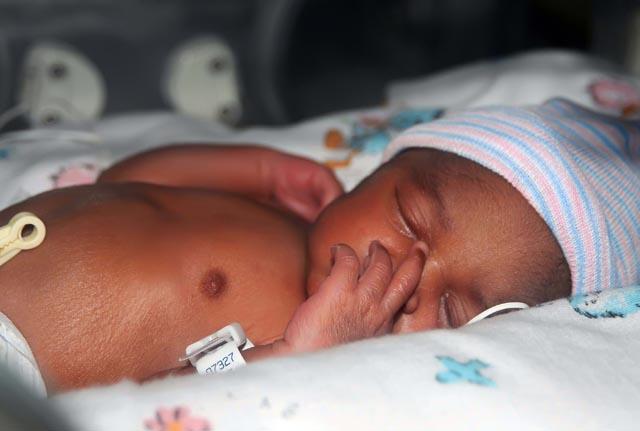NEW YORK –– Babies born prematurely may benefit from people talking to them while they are still in the hospital's intensive care unit, suggests a new study.
Researchers found that premature babies who were exposed to more talking from adults, such as their parents, in the neonatal intensive care unit (NICU), tended to score higher on development tests later on.
"This is certainly a remarkable, easy-to-implement and cost-effective intervention of informing moms of visiting their children in the intensive care unit," Dr Betty Vohr said.
Vohr is the study's senior author from the Warren Alpert Medical School of Brown University and Women and Infants Hospital in Providence, Rhode Island.
She and her colleagues write in the journal Paediatrics that a baby still in the womb is exposed to its mother's voice, but a baby born very prematurely is kept in a NICU, where it is exposed to noises from monitors and machines but little talk.
Previous research has found that children born early are at an increased risk for language problems later on, but it's unknown whether talking to them early on will help their later scores.
For the new study, the researchers recruited families of 36 babies that were medically stable but born before 32 weeks of pregnancy and kept in the NICU.
A baby is considered "full term" if it is born between 39 and 41 weeks of pregnancy, according to the American College of Obstetricians and Gynaecologists and the Society for Maternal-Foetal Medicine (see Reuters Health story of October 22, 2013 here: reut.rs/189Cm4Q.)
The babies in the study wore vests equipped with devices that record and analyse the conversations and background noises near the baby over 16 hours. The recordings were taken at 32 and 36 weeks of gestational age.
Overall, the babies were exposed to more talking at 36 weeks than at 32 weeks, but the actual amount of talk each baby was exposed to during the study periods varied from 144 words to over 26,000 words.
The word tallies were then compared to babies' Bayley-III scores, which measure how a baby is developing in regards to motor, language and thinking skills, at seven and 18 months of age.
The researchers found that after taking into account a child's birth weight, the amount of talking a baby was exposed to at 32 weeks accounted for 12 per cent of differences in children's language scores and 20 per cent of variation in their communication scores at 18 months of age.
The amount of talking a baby was exposed to at 36 weeks also accounted for about 26 per cent of variation in thinking scores at seven months of age.
Overall, the researchers found that an increased amount of adult talk in the NICU was tied to higher language and thinking scores on the tests.
"To our knowledge, this is the first study showing that early exposure in the NICU of preterm infants to higher numbers of adult words is positively correlated with cognitive and language outcomes after discharge," the researchers write.


















